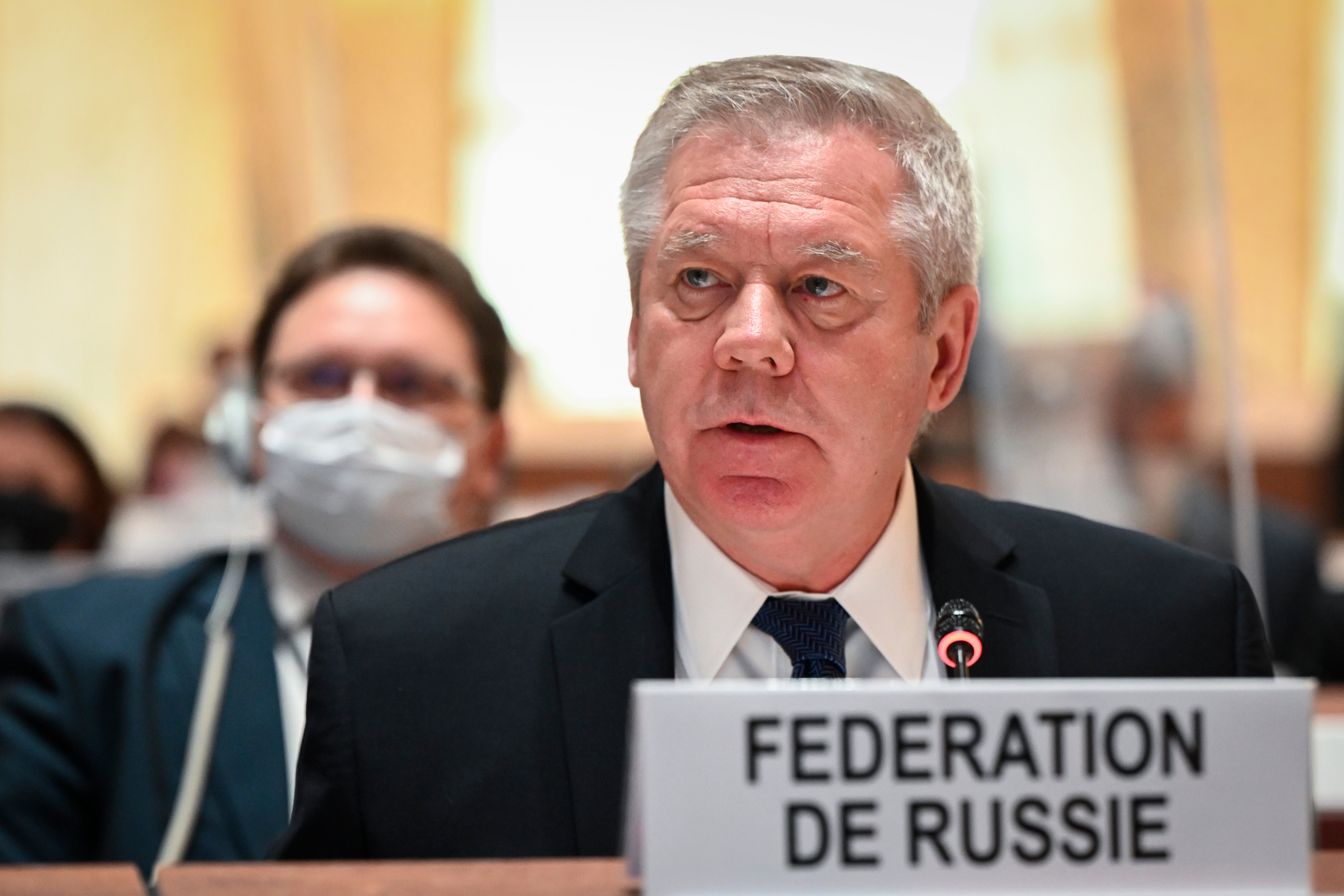UN rights body agrees to appoint expert to scrutinize Russia
The U.N.’s top human rights body has voted Friday to appoint an independent expert to step up scrutiny of Russia’s rights record at home

Your support helps us to tell the story
From reproductive rights to climate change to Big Tech, The Independent is on the ground when the story is developing. Whether it's investigating the financials of Elon Musk's pro-Trump PAC or producing our latest documentary, 'The A Word', which shines a light on the American women fighting for reproductive rights, we know how important it is to parse out the facts from the messaging.
At such a critical moment in US history, we need reporters on the ground. Your donation allows us to keep sending journalists to speak to both sides of the story.
The Independent is trusted by Americans across the entire political spectrum. And unlike many other quality news outlets, we choose not to lock Americans out of our reporting and analysis with paywalls. We believe quality journalism should be available to everyone, paid for by those who can afford it.
Your support makes all the difference.The U.N.'s top human rights body voted Friday to appoint an independent expert to step up scrutiny of Russia's rights record at home as arbitrary arrests, a crackdown on dissenting voices and limits on free speech worsen during the war in Ukraine.
The 47-member Human Rights Council passed the proposal, presented last week by all European Union member countries except Hungary, on a 17-6 vote, with 24 abstentions. Shortly before the vote in Geneva, Russian human rights group Memorial was named a co-winner of the 2022 Nobel Peace Prize.
The original proposal expressed concerns about “mass forced shutdowns" of independent media, non-governmental organizations and opposition groups in Russia.
The Human Rights Council majority agreed to name a “special rapporteur” to keep tabs on rights violations in Russia, in part by relying on help from Russian groups and activists who are both still in the country and abroad.
It's the first time the council has authorized a special rapporteur to look into human rights issues in any of the five countries that are permanent members of the U.N. Security Council: Britain, China, France, Russia and the United States.
Russian ambassador Gennady Gatilov called the draft proposal a “despicable document” that was intended “to find yet another way of exerting leverage for bringing pressure to bear on Russia.”
“This scheme by the EU and its allies is yet another attempt to punish our country for pursuing an independent foreign and domestic policy, and to entrench for the long-term the topic of Russia on the agenda of the HRC so as to unleash a stream of false allegations and accusations directed at us,” Gatilov said.
Western countries provided most of the votes in favor, joined by Paraguay, Marshall Islands and Ukraine. Diplomats from Bolivia, China, Cuba, Eritrea, Kazakhstan and Venezuela voted against the proposal.
The number of abstentions in part reflected hesitations about authorizing a special rapporteur for a country that opposed the initiative: It's unlikely that Russia will let the special rapporteur to visit the country.
The council previously appointed a Commission of Inquiry — the U.N.-backed body's highest form of scrutiny — that is looking into rights abuses related to Russia's war in Ukraine.
The Russian government has taken a number of steps to limit domestic dissent over the war, including passing a law that criminalizes spreading “fake” news about Russia's military.
British ambassador Simon Manley said “repression at home, aggression abroad” by Russian authorities had increased since Russian forces invaded Ukraine in February.
“The truth is that (Russian) President (Vladimir) Putin uses repressive legislation to restrict freedom of speech and assembly. He crushes dissent through arbitrary detention and violence and has created a climate of fear and intimidation in order to deter civil society and activists from speaking out against the authorities,” Manley said.
Russia was a member of the Human Rights Council until earlier this year, when it suspended its participation as the U.N. General Assembly was set to strip the country of its membership due to the invasion of Ukraine.
Friday was the last day of the council's fall session. A day earlier, member countries rejected a proposal, first floated by the United States and several other Western countries, to hold a debate over alleged human rights abuses in China's Western Xinjiang region.
___
Follow AP's coverage of the war in Ukraine at https://apnews.com/hub/russia-ukraine